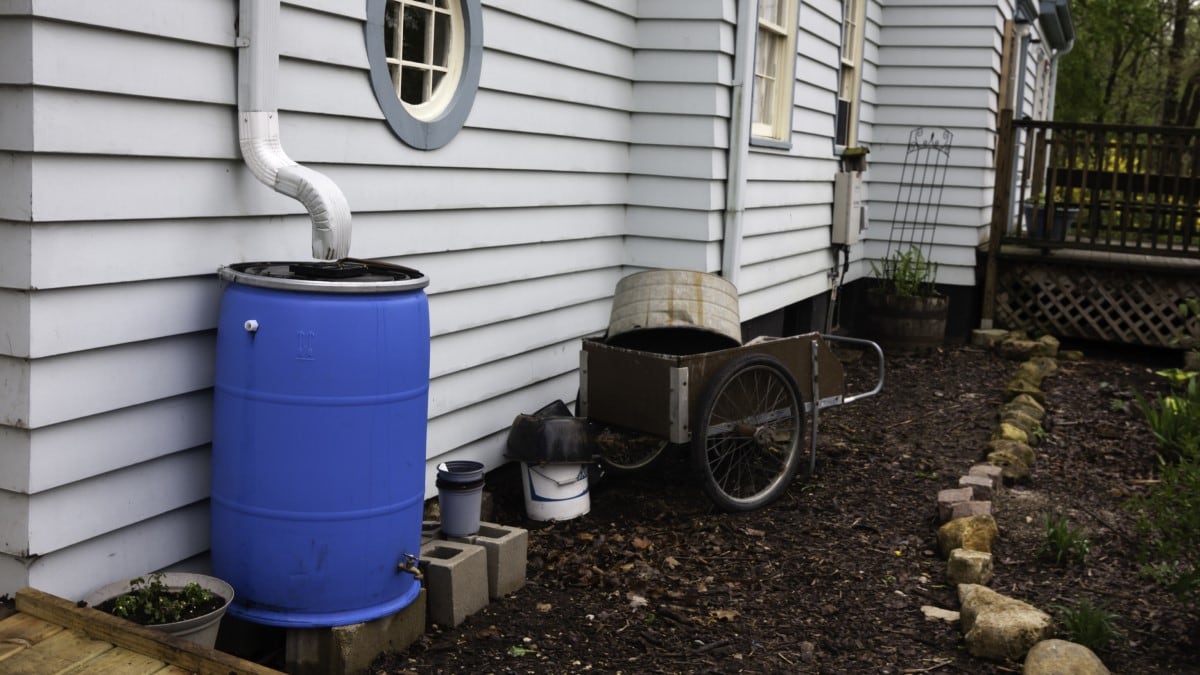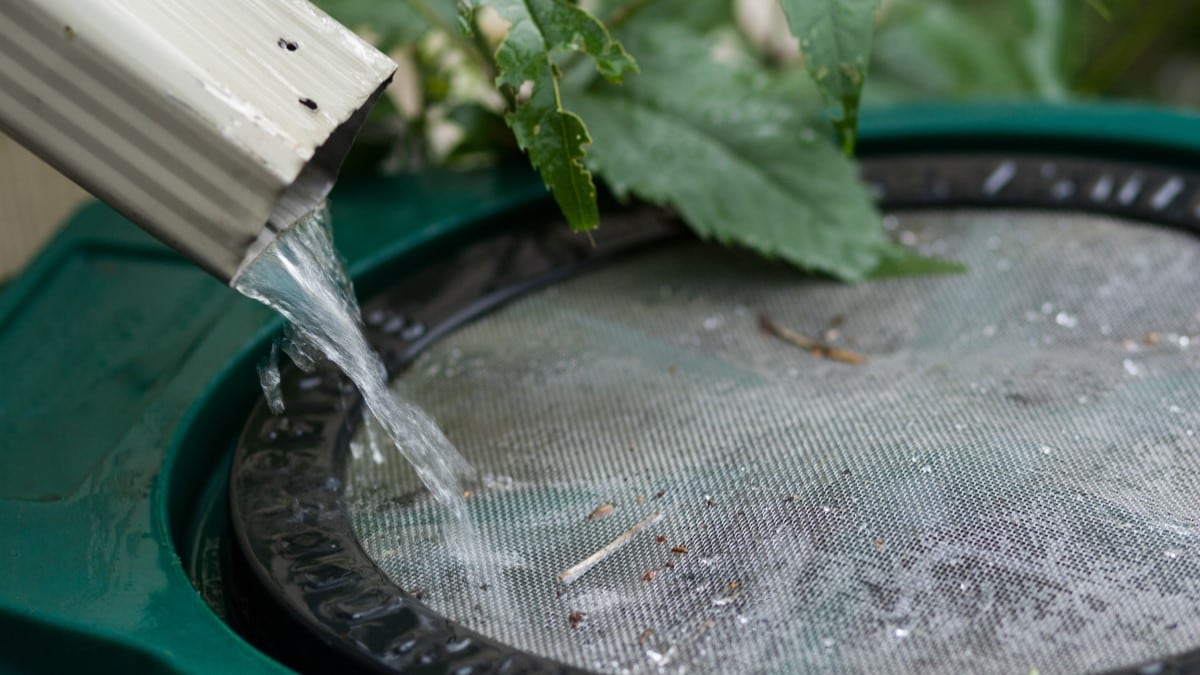Key points
- Rainwater is not necessarily safe to drink without first removing germs and chemicals from it.
- Regularly test your rainwater for germs and chemicals if you drink, cook, or bathe with it.
- How you set up your collection system and proper maintenance can improve the quality of your rainwater.
- Contact your health department for advice about testing, treating, and safely using rainwater.

Overview
Collecting and using rainwater can be a great way to save water. People use rainwater in many ways, including to water plants, clean, bathe, or drink.
If you collect and use rainwater, make sure it is safe (high enough quality) for how you plan to use it. For example, rainwater you drink needs to be cleaner (higher quality) than rainwater you use to water flowers.
Health risks
Even when rainwater looks clean, it can contain germs and chemicals that could make you sick.
Your risk of getting sick from rainwater depends on:
- Where you live
- How often it rains (typically, the more it rains, the cleaner the rainwater you collect)
- The season
- How you collect and store your rainwater
- How you use your rainwater
- If you are at higher risk of getting sick from germs and chemicals in water
Mixing rainwater and treated water
Mixing rainwater with water that has already been treated to remove germs and chemicals (such as bottled water or tap water from a public system) can make the treated water less safe. The rainwater can contaminate the previously treated water.
How germs and chemicals get into rainwater
Rainwater can pick up germs and chemicals in the air and as it moves into your rainwater collection system. Dust, smoke, and other particles in the air can contaminate rainwater before it lands on your roof.
Once rainwater falls, chemicals like asbestos, lead, or copper can get into the water. These chemicals can come from:
- Roofing materials
- Gutters
- Piping
- Storage materials
- Other surfaces
Dirt and germs from the roof can also wash into the rainwater you collect. For example, bird poop on your roof can end up in your rainwater barrel or tank. This can happen any time but is especially likely when it rains after several days of dry weather.
Recommendations
Limit how you use rainwater
Consider only using rainwater in ways that limit the chances you will swallow it. This can lower your risk of getting sick.
For example, you could use rainwater to:
- Water plants you do not eat
- Wash items you do not use for cooking or eating
If possible, use tap water from a public system or bottled water, rather than rainwater, for:
- Drinking
- Cooking
- Brushing your teeth
- Rinsing fruits or vegetables
- Watering plants you plan to eat
Maintain your system
Properly maintaining your rainwater collection system can help keep germs and chemicals out of your water. Maintenance can include:
- Keeping the system clean
- Fixing or replacing broken parts
- Regularly emptying the water out of rain barrels
Keep rainwater separate from piped water
Improve your system
Consider using a simple device called a “first flush diverter” to improve the quality of the rainwater you collect. The device directs the first rainwater that falls during a storm away from your rainwater collection system. This first flow of rainwater picks up the most dirt, germs, and chemicals. The amount of water the first flush diverter should remove depends on the size of the roof feeding into your collection system.
To help stop mosquitoes from laying eggs in your rain barrel:
- Add a screen where the water comes into the system, or
- Empty the rain barrel at least every 10 days

Test rainwater
If you drink, cook, or bathe with rainwater, test it regularly for germs and chemicals. Get advice from your health department about which germs and chemicals to test for.
Treat rainwater
If your rainwater contains germs or chemicals, treat it to remove those germs or chemicals.
Make sure you choose a treatment method or system that removes the chemicals or germs that are in your rainwater. Many kinds of filters and home water treatment systems are available.
Check local resources
Collecting rainwater is not allowed in all places. Some states consider rainwater the property of the state and regulate its collection.
Find out what your state's rainwater rules are by:
- Checking the Department of Energy's rainwater harvesting map
- Contacting your environmental quality department or health department
Your local agencies may also have resources about safely collecting and using rainwater.
